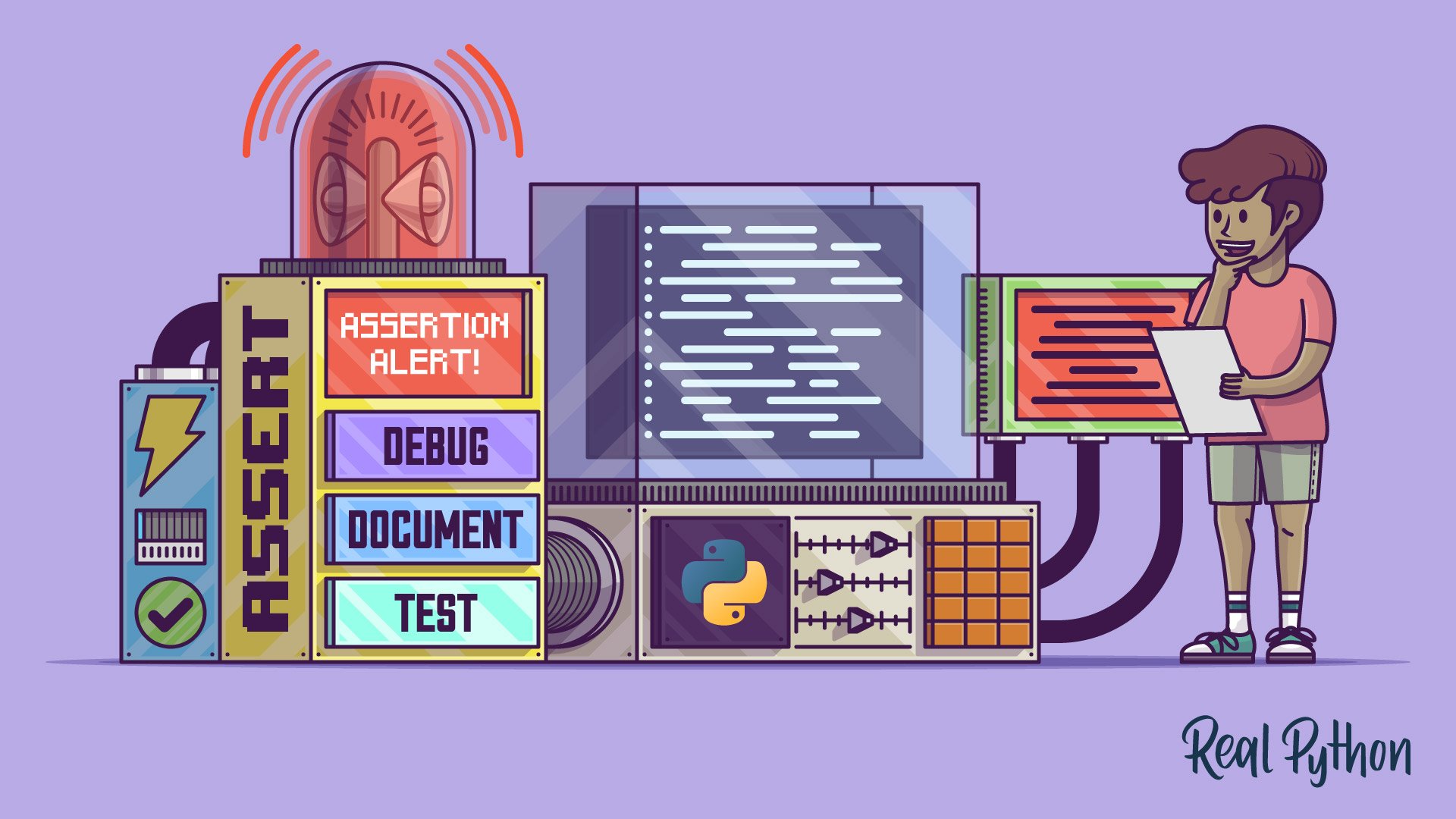Python’s assert statement allows you to write sanity checks in your code. These checks are known as assertions, and you can use them to test if certain assumptions remain true while you’re developing your code. If any of your assertions turn false, then you have a bug in your code.
Assertions are a convenient tool for documenting, debugging, and testing code during development. Once you’ve debugged and tested your code with the help of assertions, then you can turn them off to optimize the code for production. Assertions will help you make your code more efficient, robust, and reliable.
In this video course, you’ll learn:
- What assertions are and when to use them
- How Python’s
assertstatement works - How
assertcan help you document, debug, and test your code - How assertions can be disabled to improve performance in production
- What common pitfalls you might face when using
assertstatements
To get the most out of this video course, you should have previous knowledge of expressions and operators, functions, conditional statements, and exceptions. Having a basic understanding of documenting, debugging, and testing Python code is also a plus.
What’s Included:
- 12 Lessons
- Video Subtitles and Full Transcripts
- 2 Downloadable Resources
- Accompanying Text-Based Tutorial
- Q&A With Python Experts: Ask a Question
- Certificate of Completion
Downloadable Resources:












